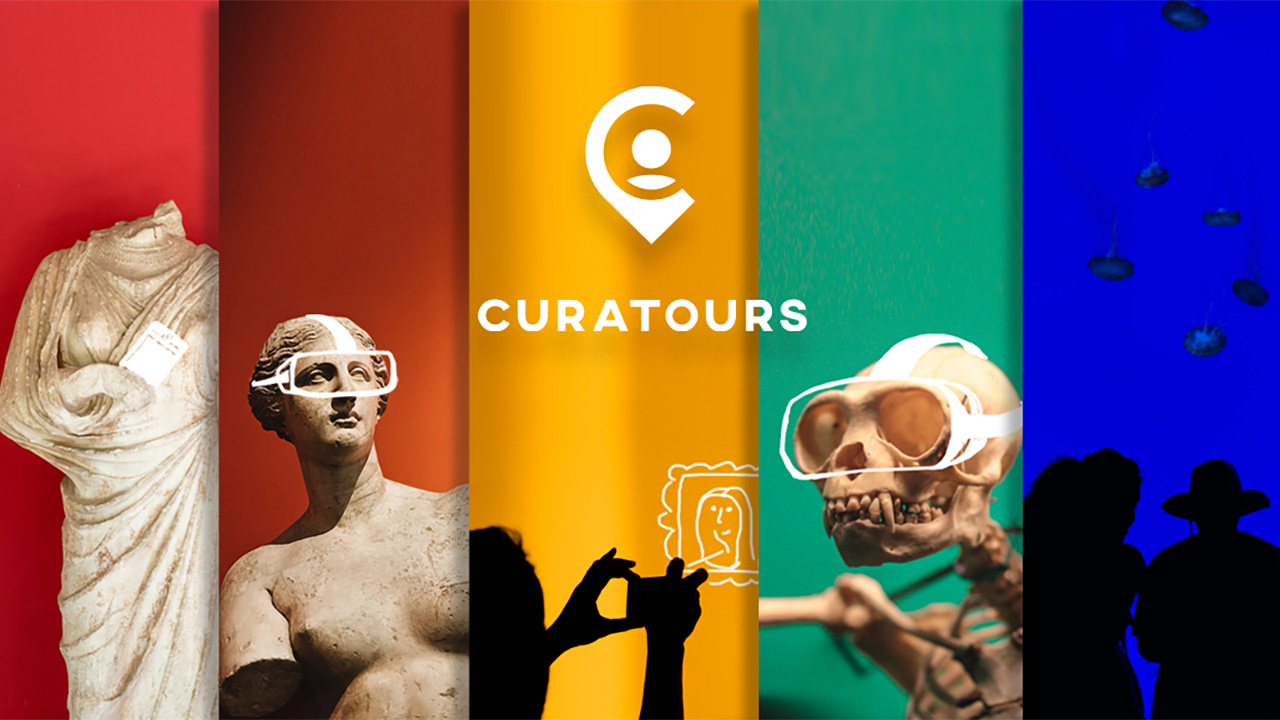At this point, the digitization of museum tours and exhibits has become par for the course. Since the onset of COVID-19 and ensuing lockdown orders, virtual content has been one of the trailblazing options for museums to safely showcase their collections. Then again, not all digital transformations are created equal. While some cultural institutions may have made smooth digital pivots, others, perhaps smaller organizations, may lack the resources to mount virtual tours and exhibitions.
Enter Curatours — a platform founded to help museums make the jump from in-person to digital, providing them an easy way to digitize their exhibitions and create bespoke programs. On it, institutions can easily create and host virtual tours and exhibitions with features such as object and environment scanning, scheduling capabilities, and ticketing setup. Besides developing programs on their own terms and tailoring content for different audiences, museums can also create new streams of revenue by offering premium tours or special behind-the-scenes access to exclusive content for a small fee.
“[Museums] can share their collection in new ways, telling innovative and focused stories, as well as bringing delicate or fragile artifacts to their audiences without conservation concerns,” says Emma Cooper, Project Lead of Cooperative Innovations, the company behind Curatours.
For visitors, they’ll be immersed in a virtual museum experience — available on web browser, smartphone, or virtual reality (VR) headsets — where social interaction is key. Users can virtually engage with exhibits and artifacts, socialize with fellow visitors, and converse with a guide. After all, adds Cooper, “The most engaging experiences are shared.”
Since its launch late last year, Curatours has partnered with the National Trust for Scotland/Historic Environment Scotland to create virtual tour of Charles Rennie Mackintosh’s Hill House, and with the Anne Frank House to integrate its existing VR app with the platform for a multi-person experience. More is in store too, as Cooper fills us in on how Curatours intends to grow its engaging museum experiences.
What was the motivation to create a platform like this one?
There is obviously a particular need for this technology in our current COVID landscape, but research has already shown that this appetite will remain into the years to come. Curatours will enable consumers to experience museums and galleries from anywhere in the world, and to do so in an environmentally friendly way.
How can visitors engage with exhibitions or tours on Curatours?
In self-guided tours wherein you “follow your nose” around a venue, you can engage with interpretation text, audio and video, sharing the entire experience with your friends. You can book on to a pre-recorded guided tour, where a tour guide leads you through the experience, sharing their specialist knowledge and deepening your engagement with the museum and its objects. Curatours will also offer live tours, where your tour guide will join you in the virtual museum space in real time, crafting a bespoke experience and answering your questions as you go.
What differentiates Curatours from similar platforms?
Many museums and galleries have dipped their toes into the virtual realm, using image mapping and 3D photography to create virtual tours hosted on their websites. Curatours will provide a single access point, hosting all of these experiences and allowing you to experience museums from across the country (and, we hope, the globe), all from the same starting point.
How else can museums benefit from hosting virtual tours on the platform?
Once a tour is up and running, we can provide exact data on which items your audiences interact with, where they go, and what they gravitate towards, providing unparalleled visitor insight. Tours in the digital space have no impact on your physical site – half a dozen pre-recorded tours could take place simultaneously overnight while your museum is closed, requiring no input from museum staff and providing revenue.



